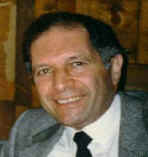Nurturing the exceptionally gifted child
by Joe Sinclair
[Biodata and picture of contributor will be found by clicking here]
Generally, educationalists and parents have tended to focus attention and concern on those children who betray "problem" characteristics relating to learning difficulties and disorders. Conventionally the assumption has been that symptoms such as those associated with attention deficit and hyperactivity disorders inevitably derive from clinical causes, and this in turn frequently leads to misdiagnosis or over-diagnosis.
.But it is not the intention of this article to deal with the causes and treatment of children suffering from ADD or ADHD. Rather it is the fact that until comparatively recently it was not recognised that similar behavioural difficulties might be the result of a child's inability to integrate into a classroom or group environment because of the child's exceptional intelligence. A child's inability to socialize with its peers or respond acceptably to discipline may derive simply from frustration at being forced to march to the slow tempo of the drumbeat of others. And this frustration regularly manifests itself in similar behaviour patterns to those of ADD.
Some of the commonly recognised characteristics that are to be found in children diagnosed as suffering from ADD or ADHD include [1]
Fidgeting in class or otherwise displaying restlessness.
Being easily distracted.
Having difficulty participating in group activities.
Being impatient at having to wait for a turn.
Losing interest in an activity and constantly changing to other activities.
Talking loudly and excessively.
Interrupting others in their speech or activities.
Appears not to be paying attention to things that are being said.
Often behaving rashly or impulsively.
Now compare that list with a list of behaviours associated with giftedness. [2]
Poor attention, boredom, daydreaming in specific situations.
Low tolerance for persistence on tasks that seem irrelevant.
Judgement lags behind development of intellect
Intensity may lead to power struggles with authorities.
Questions rules, customs and traditions.
There is clearly a considerable overlap between these two lists and it behoves both educationalists and parents to be aware of the need to avoid misdiagnosis and to ensure that the gifted child is treated appropriately in order to remedy any tendency towards anti-social behaviour.
One way for parents to begin identifying their young gifted children (age 4 through 8) is to become aware of common characteristics they can observe at home. Below is a list that many parents find useful: [3]
Expresses curiosity about many things.
Asks thoughtful questions.
Has an extensive vocabulary and uses complex sentence structure.
Is able to express him/herself well.
Solves problems in unique ways
Has a good memory.
Exhibits unusual talent in art, music, or drama.
Exhibits an especially original imagination.
Uses previously learned data in new contexts.
Is well able to order things in logical sequences.
Discusses and elaborates on ideas.
Is a fast learner.
Works independently and uses initiative.
Exhibits wit and humour.
Has a sustained attention span or is willing to persist on challenging tasks.
Is very observant.
Shows talent in making up and telling stories.
Is interested in reading.
It is also important to dispel various myths associated with gifted students, such as
It is undemocratic to give special attention to the gifted.
Gifted Students will do well on their own.
Gifted students should strive to be part of the mainstream.
Gifted students in special programs will have social-emotional problems.
![]()
[1] Based on "Diagnostic and Statistical Manual of Mental Disorders," Third Edition, Revised, Washington, DC, American Psychiatric Association, 1987.
[2] Based on Webb, J. T. (1993). "Nurturing social-emotional development of gifted children." In K. A. Heller, F. J. Monks, and A. H. Passow (Eds.), "International Handbook for Research on Giftedness and Talent," pp. 525-538. Oxford: Pergamon Press.
[3] Based on a report on the website of the National Association for Gifted Children (USA) http://www.nagc.org/index.html
![]()
 |
Managing Editor – Joe Sinclair |